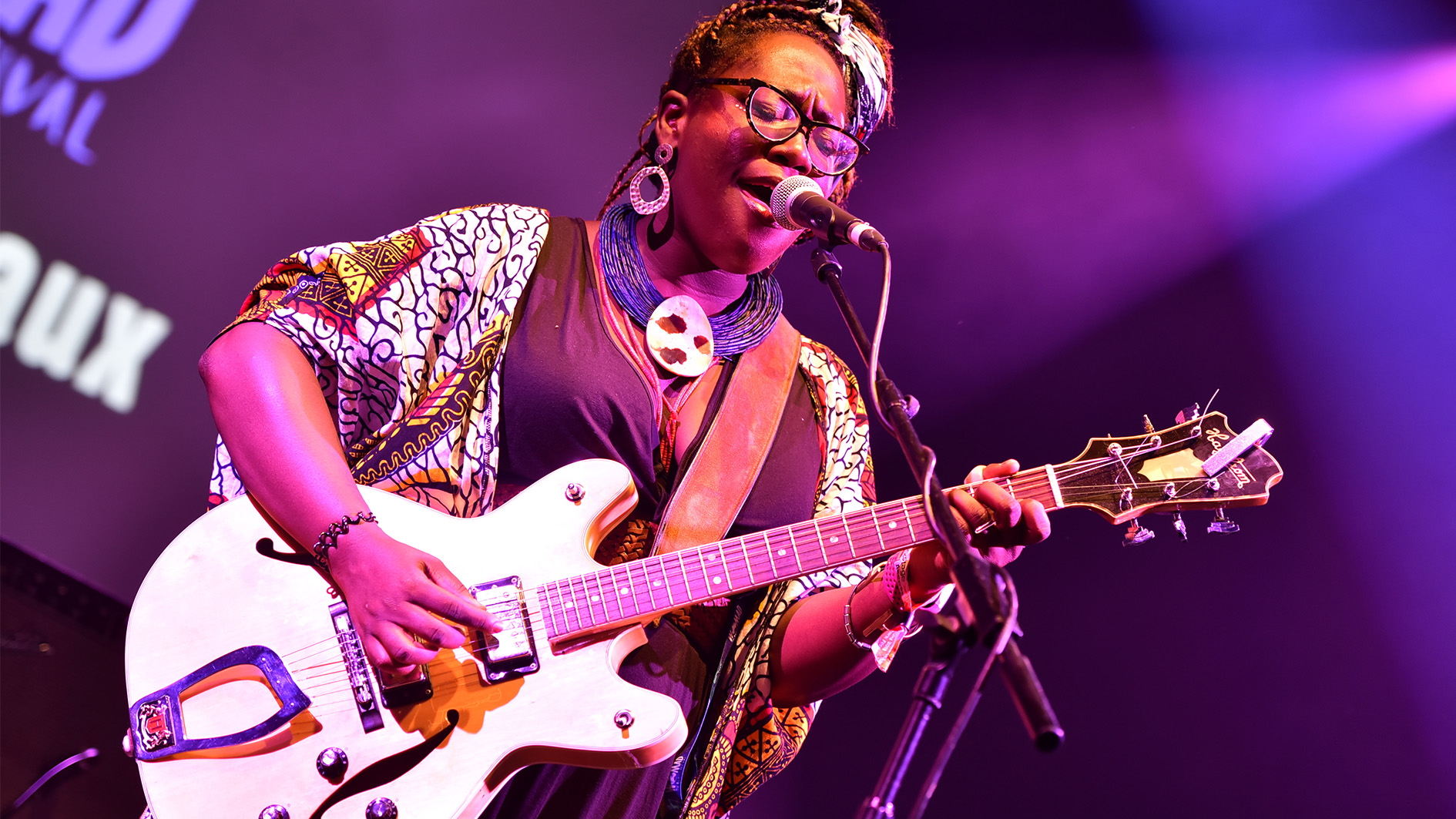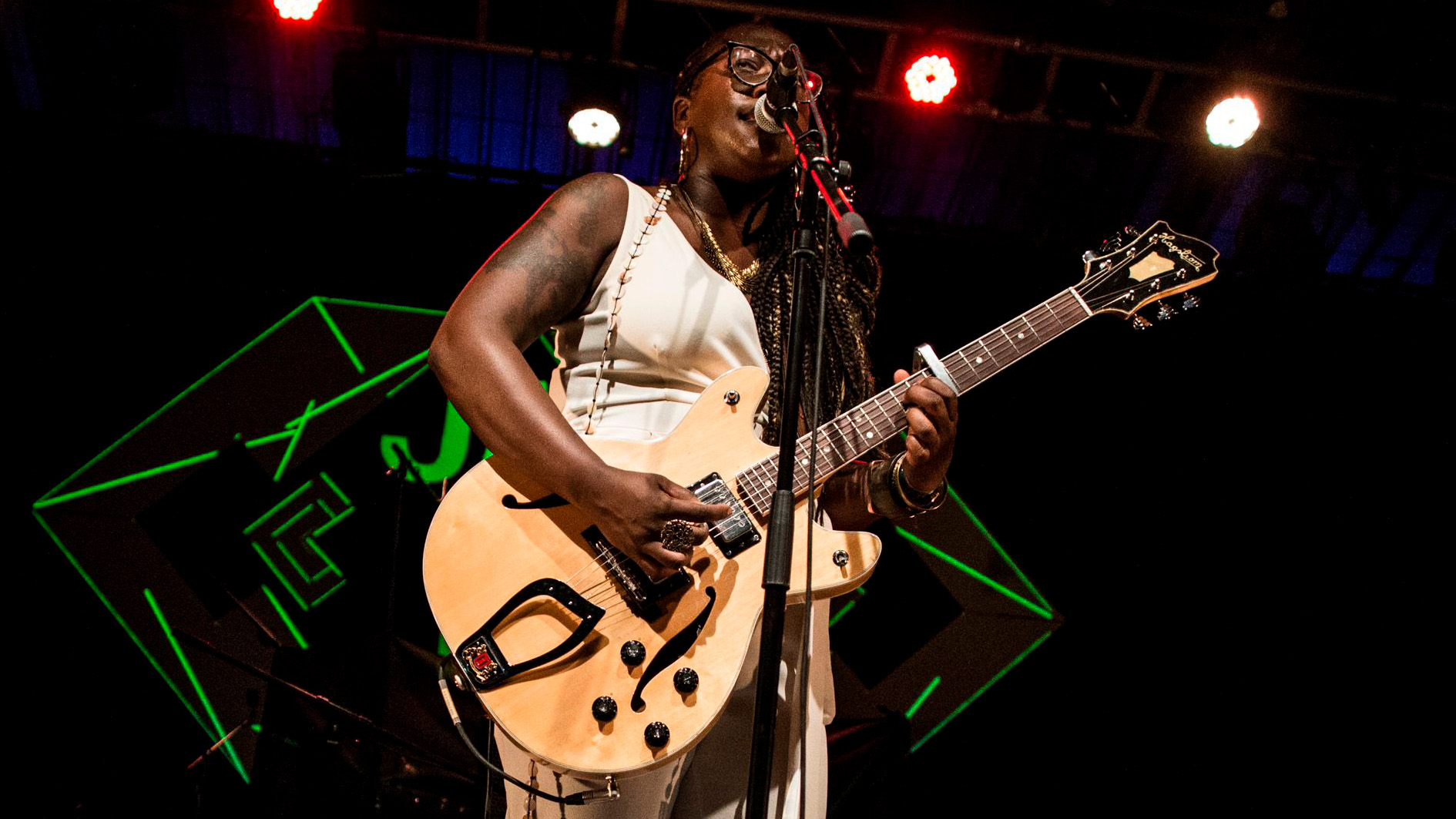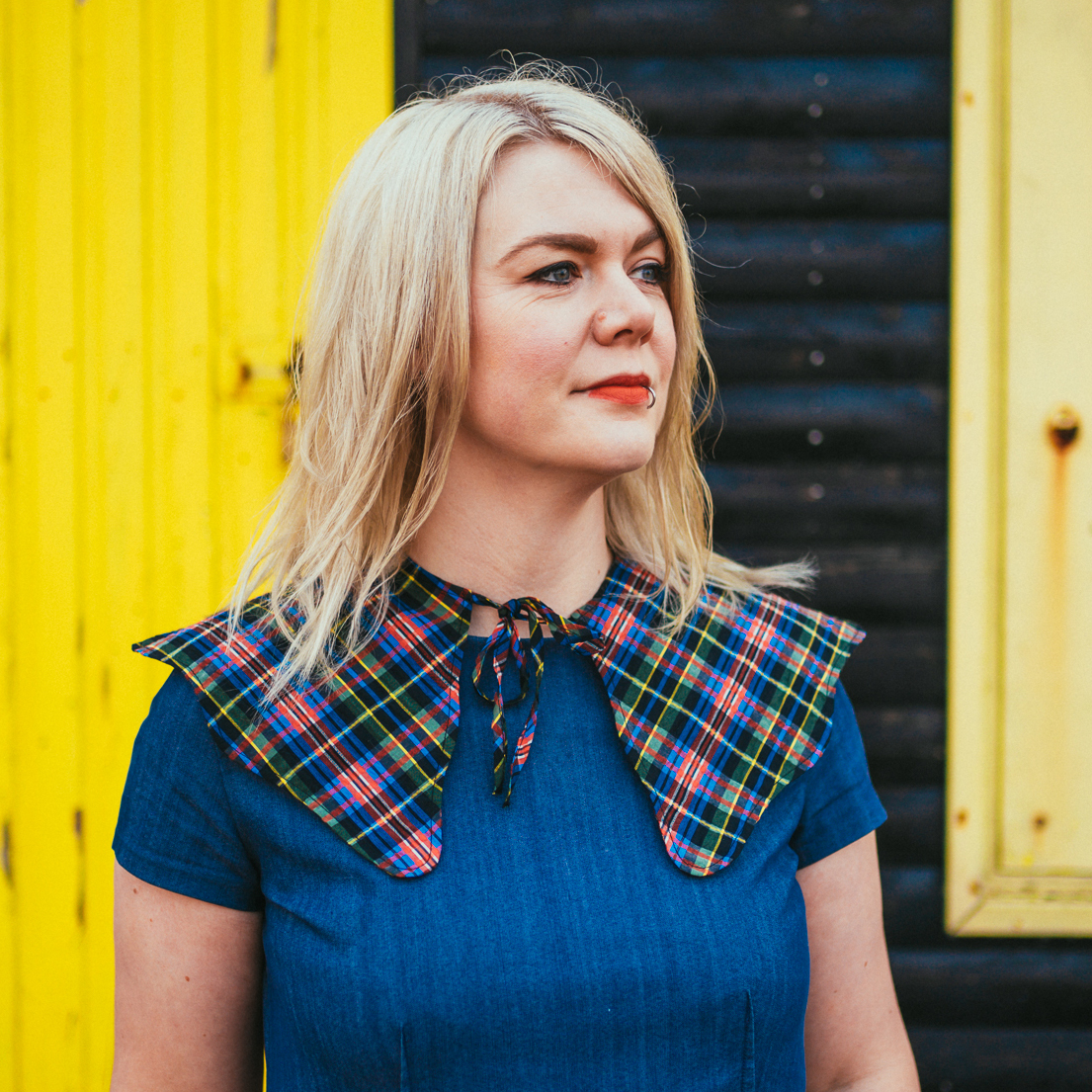Mélissa Laveaux talks luthiers, representation and her "Pretty Woman moment" with Sister Rosetta Tharpe’s guitar
Ahead of her upcoming release, Mama Forgot Her Name Was Miracle, the Canadian indie-roots phenom reflects on her career so far, and how Stairway to Heaven inspired her to pick up the guitar again after years apart

When Mélissa Laveaux joins our call, she’s still buzzing from a bout of skipping, grasping for something to doodle on during her post-workout come down. It’s the golden hour in Paris, a city the Ottawa-born artist admits she moved to more through convenience than romance, without a drivers’ license and everything within walking distance.
Laveaux returns to our loudspeakers this month with her first new music since 2018’s Radyo Siwèl, a rich reworking of Haitian folk songs inspired by the singers and sounds that rang out from her Haitian parents’ record player growing up: actress and Vodou vocalist Toto Bissainthe and activist and composer Martha Jean-Claude.
“It was sort of my planned retirement project,” she explains from the sun-dappled spot of her desk. “I had offered 10-15 songs to my label that they didn't like and so I turned that project into a musical called And Sometimes the Flower Is Just Another Knife.”
Instead, her foray into folklore was laid out for a next release, finalizing a longstanding goal in the process teaming up with Trinidadian guitarist Drew Gonzales.
“He and I have always said that we would work on a record together, and this is the closest we've ever gotten so far,” she beams. “I remember one time, we were recording and he said, 'Mélissa, you could sing the telephone book and it would win a Grammy!'”
Not everyone has been so effusive of the songwriter’s talent. While her dad might have gifted her the Value Village Spanish guitar that she’d begin learning on when she was in her early teens, Laveaux was very much left to her own devices.
“People are always like ‘Did they sing you lullabies?’ And I’m like, 'No-one sang to me when I was younger. The record player sang to me.'” But it was a moment a few years later that could have put the guitarist off her game for life.
Get The Pick Newsletter
All the latest guitar news, interviews, lessons, reviews, deals and more, direct to your inbox!
During a family friend’s confirmation party where she was being wheeled out by her mom to perform alongside her siblings (“My sister read a monologue from a play. My brothers read poems”), one of the attendees who happened to be a famous classical pianist crushed her confidence.
“He stopped me and he was like, 'You need to get lessons or never play again.' I quit playing for about two or three years. Then in my last year of high school, I started playing again because I didn't know how to play Stairway [to Heaven] the way the boys in my class did.”
Thankfully for us, Laveaux remained faithful to the fretboard. She’s gone on to create a self-defined sound of indie-rock fused with electric Afro-Carib stylings, reminiscent of similarly genre-agnostic pair Ibeyi or, at points, the sprawling wizardry of Merrill Garbus (Tune-Yards).
So, ahead of the release of that upcoming release, we hear more from the Canadian singer-songwriter on luthiers, Ladyfest and realizing her own Pretty Woman moment with Sister Rosetta Tharpe’s guitar.
Your guitar technique finds you interweaving intricate lead lines along often unmatched husky vocal lines – how did you develop this playing style?
It’s about who’s getting signed and where you're living. I'm living in France which means that there are almost no Black women in rock music
“When I started playing guitar, I never wanted to sing. I started singing very randomly because I was volunteering for Ladyfest in Ottawa and I was part of the volunteer committee. They were like, 'Oh, if any volunteers want to one audition, you can submit a tape.'
“It was cool because I got to open for Mirah [Yom Tov Zeitlyn]. That community was my community for a little bit until I put my music on MySpace, and then the label that I had up until four years ago [No Format] found me and asked me to come to Paris to release my music.”
You’ve spoken about the lack of representation for Black women unless you’re playing blues or singing gospel. Do you think that’s because of a traditionally more male-dominated scene, or are certain genres more inaccessible?
“It’s about who’s getting signed and where you're living. I'm living in France [which] means that there are almost no Black women in rock music. I know a few drummers who are Black and who are playing in rock bands, but they're nearly invisible. You see a lot more Black women in R&B, in urban music and not just because they don't exist, but because they aren't signed.
“The only field in which there's no stereotypical boundary for women is hip-hop in France. Because you will have actual sex workers in France, who are rappers, you'll have butchier, queer women who are in hip-hop. You have more Femi women. That's one of the fields where I see a lot more change, as opposed to just being like, ‘Look, women are wearing pantsuits.’”
Your UK TV debut saw you perform on Later… with Jools Holland with a full-bodied Hagstrom Viking while your COLORS performance [below] finds you playing an angular maple number. Talk us through some of the instruments you write and record with.
“I was dreaming about a white guitar and looking for Hagstrom for a while. I decided last minute to go away for my birthday and had been on this Facebook forum for Hagstroms. The minute I booked my ticket to Portugal, this guy from Porto was like ‘I've got this Hagstrom from '72.’
“The guitar I played before that was a Gibson ES-125 from 1953 – and that's actually Sister Rosetta Tharpe's guitar, which I found by hanging around Paris. I was trying different Gibsons and I kept going to the shop, [and saying], 'Do you have anything that's less trebly than a Gibson?' And the guy was like 'Well, maybe you should just learn how to play guitar?' I call this my Pretty Woman moment, where I walked back in with the ES-125.
“My most recent guitar is The Future. The luthier is in Berlin – his name is Nicolai Schorr. Nicolai was a fan of Radyo Siwèl and he sent me the guitar during the second lockdown in Paris. I've been obsessed with it ever since. If I had to recommend a luthier, though, I'm gonna recommend TunaTone Instruments.”
You’ve been on the road in France touring the new record, Mama Forgot Her Name Was Miracle. How have the songs translated into the live space?
“It's harder, because we're seven on the tour now. Since I wrote the album alone in my room with a beat machine and a guitar, I was layering and layering. I never thought, 'Oh, we're gonna play this live!' I used to make demos 15 years ago on my laptop with just guitar and vocals. Back then, I was still playing with a Cajon player!”
Martha Jean-Claude was one of the muses for Radyo Siwèl. Who were the inspirations for this record, and how have they inspired your most recent sounds?
“As opposed to having one inspiration, I was reading a lot. I started noticing that all my reading was related to people who had done incredible things; Pope Joan; Popess of Visconti; Jackie Shane, a trans singer-songwriter from the 1960s who won a Grammy in her 80s and then died nine months later.

“There was James Baldwin, Harriet Tubman and artists like Ana Mendieta and Faith Ringgold. People who were suggesting that you can't accept what is unacceptable.
“My mother's first name is Miracular – it's a very big long, mouthful, and I thought it was really funny that she doesn't use it. All these people who are going to be listening are never going to realize that they have this potential, this miracle, this capability of doing the impossible.
“That was really important for this record: to show that impossible things are possible with just about anybody if you set your mind to it.”
- Mama Forgot Her Name Was Miracle arrives March 11.
Cheri Amour is a writer, editor and broadcaster intent on amplifying the voices of women and non-binary artists in print, online and on air. During her twenties, she played lead guitar in a touring two-piece, sharing the stage with The Slits and John Peel-approved punks The Nightingales. Formerly Deputy Editor at TGA Magazine, Cheri headed up its Tech section pouring over pedals with everyone to indie icon Debbie Smith (Echobelly/Curve) to multi-instrumentalist Katie Harkin (Sleater Kinney/Waxahatchee/Wye Oak). She's currently working on an upcoming 33 1/3 book on the unassuming influence of South Bronx sister troupe ESG, out in Spring 2023.
“There’d been three-minute solos, which were just ridiculous – and knackering to play live!” Stoner-doom merchants Sergeant Thunderhoof may have toned down the self-indulgence, but their 10-minute epics still get medieval on your eardrums
“There’s a slight latency in there. You can’t be super-accurate”: Yngwie Malmsteen names the guitar picks that don’t work for shred

![A black-and-white action shot of Sergeant Thunderhoof perform live: [from left] Mark Sayer, Dan Flitcroft, Jim Camp and Josh Gallop](https://cdn.mos.cms.futurecdn.net/am3UhJbsxAE239XRRZ8zC8.jpg)








